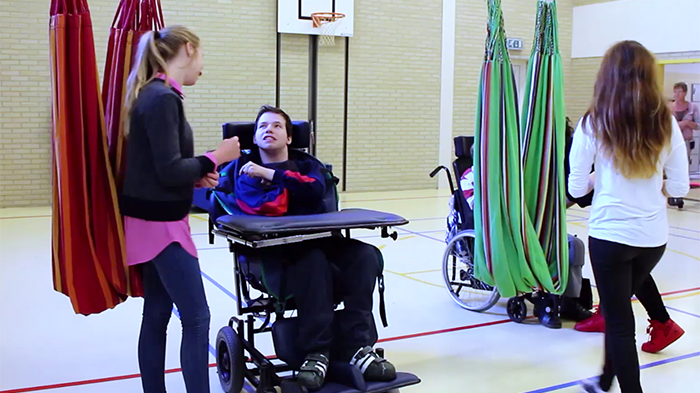Challenging behaviour in people with profound intellectual disabilities can be prevented
Healthcare psychologist Petra Poppes has drawn up some practical recommendations to raise awareness of challenging behaviour in people with profound intellectual and multiple disabilities (PIMD) among parents and carers. People with PIMD sometimes bang or shout, or constantly move their fingers in front of their eyes. Their behaviour can be puzzling for the people around them. Poppes hopes to give clients more control over their own lives, give a voice to the speechless, as it were. Poppes works at ’s Heeren Loo Zorggroep in Amersfoort, and also as a researcher at the Department of Orthopedagogy & Clinical Educational Science at the University of Groningen. Together with her colleagues, she has founded the Expertisecentrum EMB (PIMD Expertise Centre), which will open its doors on 2 June 2016 during the ‘EMB Today’ (PIMD Today) conference in Utrecht.

University of Groningen videos
The weekly online video magazine Unifocus highlights topics related to the University of Groningen in the fields of research and society, student life, teaching, policy and internationalization.
You can find more videos in our video portal.
| Last modified: | 24 September 2021 1.28 p.m. |
More news
-
15 April 2025
Impact gaswinningsproblemen op Groningers: negatieve ontwikkeling zet niet door, maar meerdere keren schade blijft een punt van zorg
Impact gaswinningsproblemen op Groningers: negatieve ontwikkeling zet niet door, maar meerdere keren schade blijft een punt van zorg
-
17 March 2025
Liekuut | The high price of conflicts
According to Carsten de Dreu, Professor of Foundations of Cooperation and Social Organization at the University of Groningen, a lot can be learned from conflicts.
-
10 March 2025
Science for Society | Memory Lab for higher marks
Learning facts at school is something hardly anyone likes. The day before a test, pupils cram as many words or names as possible into their heads, only to hopefully remember them the next morning and then forget them again after the test.
